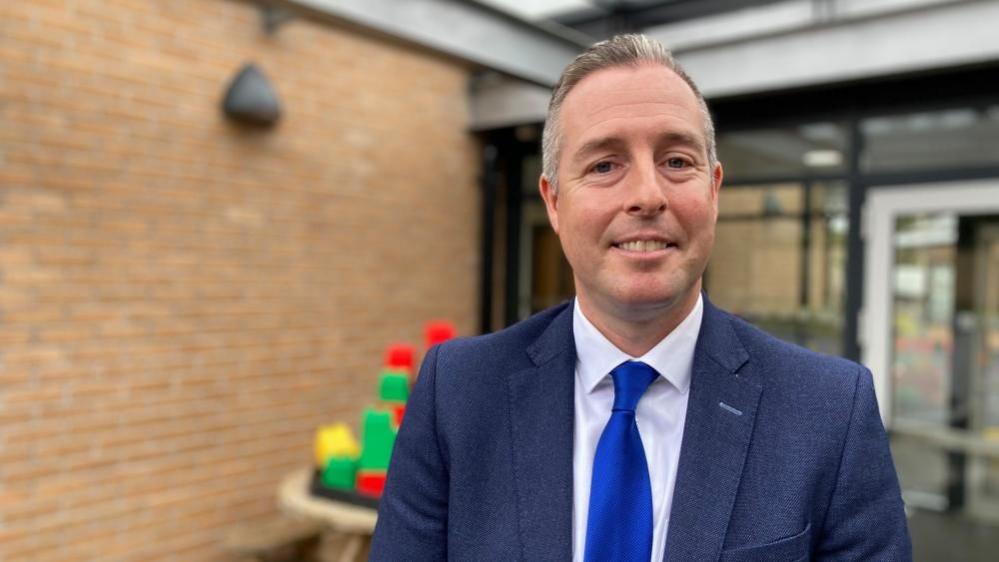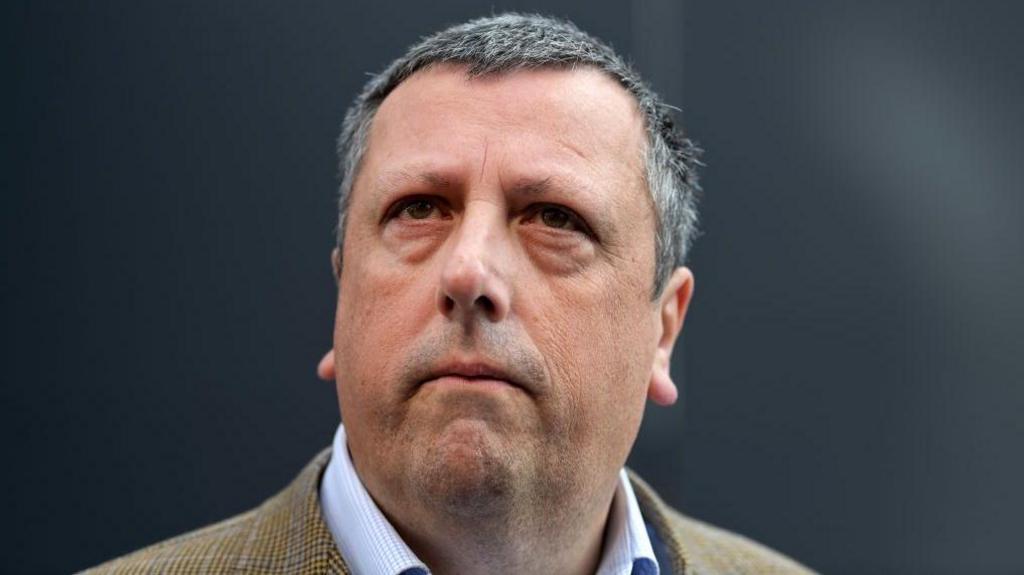Givan defends meeting with loyalist paramilitaries

Paul Givan said nobody else would dictate his decisions as education minister
- Published
The education minister has defended holding a meeting with the Loyalist Communities Council (LCC) about a proposal to build an Irish language school in east Belfast, and said nobody other than him will dictate which schools should open or close.
Paul Givan drew some criticism after he met the LCC, which includes representatives from paramilitary groups the Ulster Volunteer Force (UVF) and Ulster Defence Association (UDA), last month.
Speaking at the opening of an integrated school in county Londonderry, Givan said "99%" of their discussion was about educational underachievement in working-class communities.
He said he would continue to meet people who want to move communities forward.
Givan added: "Some of the people criticising me for meeting with the LCC are the same political parties who campaigned to release terrorist prisoners into our communities."
Justice Minister Naomi Long criticised the education minister, saying he was undermining a collective approach to dealing with paramilitaries.
She was speaking at an event called Ending the Harm, which aimed to raise awareness of the damage paramilitaries cause to communities.
"We are very clear that we should do nothing which gives creditability or status to violent organisations," Long said.
She said she would not meet the LCC and did not believe that other ministers should either.
At Stormont's education committee on Wednesday, Sinn Féin assembly member Pat Sheehan criticised Givan for meeting "an "unrepresentative" and "unelected" group of loyalists.
'Polarity and volatility'
The Department of Education has released a note about the meeting on 24 September.
It said David Campbell, the chair of the LCC, reported that a lack of support for plans for an Irish language school in east Belfast were "causing polarity and volatility" in the community.
Givan's response was not recorded.
After the meeting, the LCC released a statement in which it said that it "advised the minister that the proposal to build an Irish language school in the mainly unionist area of east Belfast should be stopped" and that it had "no meaningful support from the local unionist and loyalist population."
Speaking on Friday, Givan said that while he was education minister, nobody else would decide what schools would open or close.
"Nobody will ever exercise a veto of decisions I will take as education minister," he said.
"No other politician will dictate to me what decisions I will take when it comes to schools that should be opened or should be closed.
"When it comes to development proposals for any school, I’ll be very clearly governed by the legislative framework."

David Campbell of the Loyalist Communities Council made the comments in the meeting with the education minister
Naíscoil na Seolta first opened as a pre-school in 2021, and, as Scoil na Seolta, is now planning to admit its first Primary One pupils.
The integrated Irish-medium school was established by the well-known Irish language activist Linda Ervine and will be the first school of its kind in east Belfast.
The school's board are hoping that its long-term future will be on the site of Van Morrison's former school Orangefield High.
However, it has initially identified a proposed temporary site on Montgomery Road in the Castlereagh area.
In June, Belfast City Council's planning committee voted by a majority of 11 councillors to five to allow the school to use the Montgomery Road site, which is currently vacant, for three years.
The school has received money from the Shared Island Fund to rent the land in east Belfast and pay for a mobile classroom.
- Published1 October 2024

- Published5 June 2024
